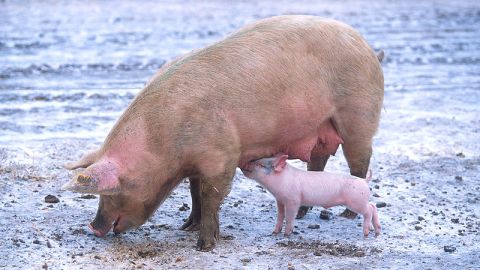How Scary Are Those Swine Flu Stats, Really?

The numbers that came out yesterday were downright alarming: up to 90,000 people could die from the swine flu this fall, and 1.8 million people could be hospitalized. So says a report from the President’s Council of Advisors on Science and Technology.
But how scared should we be, really? For one thing, those numbers out of context don’t mean very much. In truth, the White House numbers estimate the deaths would be between 30,000 and 90,000, while a normal year checks in between 30,000 and 40,000 flu deaths, though bad years like 1957 have reached as high as 70,000.
The scarier fact is that the vaccine against swine flu won’t be ready until October, while flu season generally begins in force in September. As I recently wrote for DISCOVER, swine flu expert Michael Worobey of the University of Arizona says that failure was mostly caused by public health officials not having a wide database of flu genetics and being months behind the curve when swine flu jumped from pigs to humans.
As Worobey says in a Big Think/Discover/Pfizer-sponsored panel discussion, we have the genetic sequencing technology to build that database and be a step ahead in creating the vaccine. We just have to get our act together and start sampling not only people with the flu, but also populations of birds, pigs, and other animals closely related to us so we catch new strains jumping around.
Fortunately, Worobey says, he doesn’t think there’s sufficient evidence to believe swine flu will return with significantly greater virulence in humans when the Northern Hemisphere’s flu season returns next month. But we should learn from the surprise of swine flu so we’re more prepared for the next big species-jumping viral strain.





